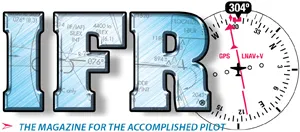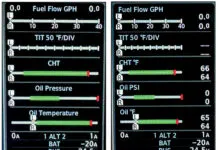Simulators first made a believer of me when I got a Pacer Mk II in 1978. In 10 years, I put over 1000 hours on it. It augmented my Cessna 172 so faithfully that I successfully moved 15 pilots through their instrument rating and completed 40 IPCs with its help. An FAA authorization allowed 15 hours to be logged in the MK II towards the rating. Of course, they’re now called training devices and there are different capabilities that allow you to log time depending on how it’s used.
I recently attended the two-day Redbird Migration 2022 session at the Aerospace Center for Excellence (which in itself is a fascinating venue) in Lakeland, Florida. I was overwhelmed by the presentations filled with useful information about how these devices can help pilots train and improve their proficiency. For the FBO (most of the attendees), it demonstrated how sims increase the value of their training.
Of the eight breakout sessions I attended, two were particularly eye opening. “Personalized Proficiency Training With Redbird Pro,” presented by Redbird’s VP of Marketing, Josh Harnagel, and “Why Do Good Pilots Make Bad Decisions” by Richard McSpadden, Senior VP of AOPA Air Safety Institute.
In the first, an analysis of pilot proficiency reveals that the process of achieving safe performance is more than just building hours. Instead, it recognizes and challenges weaker areas of our skills and knowledge and has a means of assessing performance over time. But how do we ferret out those weaker areas?
Redbird Pro is a system that combines pilot performance in the simulator and the airplane with an assessment method to measure a pilot’s proficiency and recommend training in areas that need improvement—Pro Score. This app uses artificial intelligence and behavioral design to help pilots create and execute an adaptive proficiency plan.
Designed for the individual pilot, it provides feedback using a scoring system that obviates the need for a CFII evaluation. With loss-of-control being the number one cause of aviation fatalities, it identifies areas in need of increased proficiency that includes psychomotor skills and knowledge.
Best of all, Redbird Pro will work with most desktop sims—you don’t need a Redbird. It is a monthly subscription available from the App Store or Google Play. Two levels evaluate VFR and IFR pilot skills.
The second presentation noted the importance of looking beyond the first option that comes to mind when the situation in the cockpit becomes critical. Two books were mentioned to help us understand the thinking process: Think Again and Thinking Fast and Slow. The phrase “plan-continuation bias” was explored, and several examples were presented to help pilots gain new insights into gut feel and intuition.
The presenter also noted that military and airline pilots typically use less intuitive judgment because of the structured environment in which they fly. GA pilots are more prone to perceptive-reactive responses.
Those are just a few of my observations of this remarkable event sponsored by Redbird that you might well consider attending the next time around.





